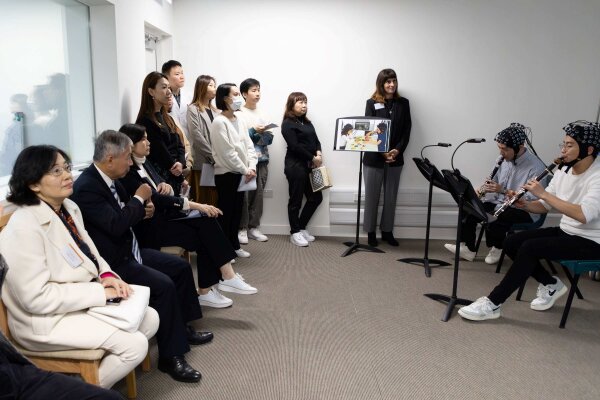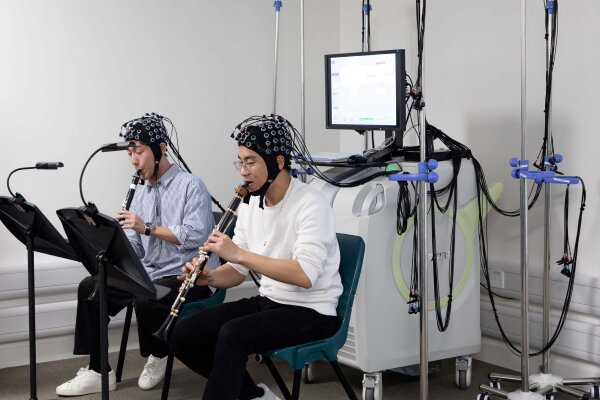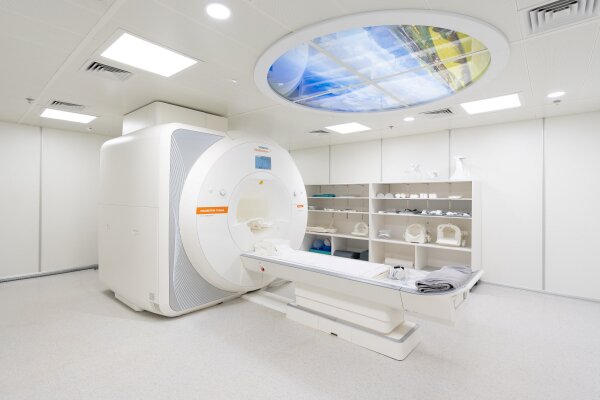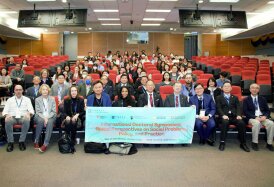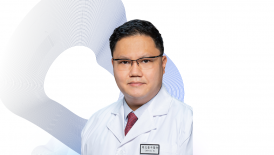
HKBU launches Life Science Imaging Centre to promote transdisciplinary research
Hong Kong Baptist University (HKBU) held today (8 January) the opening ceremony of its Life Science Imaging Centre—a central research facility to support the University’s transdisciplinary research endeavours to expand the horizon of knowledge creation in line with its Institutional Strategic Plan.
Equipped with advanced brain imaging facilities, covering a 3T Magnetic Resonance Imaging (MRI) scanner, Electroencephalogram (EEG), functional Near-Infrared Spectroscopy (fNIRS), and Transcranial Magnetic Stimulation (TMS) system, the Centre supports academics across different disciplines to translate these cutting-edge facilities into impactful research projects that can address various emerging global issues.
At today’s opening ceremony, Dr Clement Chen, Chairman of the Council and the Court of HKBU, said: “It is more important now than ever that our academics across different disciplines work together to achieve greater synergy. I have every confidence that this newly established Centre will be our catalyst in driving forward the University’s commitment to promoting academic and research excellence, inspiring innovative research and forging many meaningful collaborations which will contribute to a better world.”
In his address, Professor Alexander Wai, President and Vice-Chancellor of HKBU, said: “The Centre is not just a research hub. It is the University’s neural network, sparking connections across disciplines from neuroscience to arts, social sciences and humanities, science and technology, and beyond.”
Supported by the Centre’s advanced facilities, scholars at HKBU have embarked on numerous innovative and pioneering research projects, covering the study of the neural architecture of leadership; associations of the human gut microbiome with food preferences and consumption and brain activity; collaborative inter-brain behaviours in music ensemble; and brain network strategies for modulating neurocognition and treating neuropsychiatric disorders.
As set out in its 10-year Institutional Strategic Plan, HKBU is committed to nurturing future-ready students via transdisciplinary education and research. Apart from the establishment of the Centre, four transdisciplinary undergraduate programmes have been launched to cultivate future leaders who can effectively navigate the advancements brought by new technology in the 21st century.
Click to view the video.
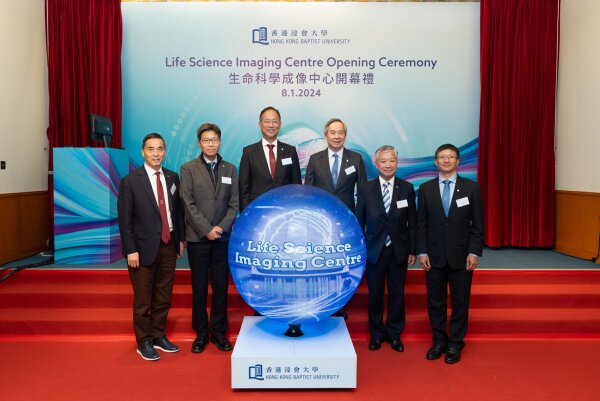
Dr Clement Chen, Chairman of the Council and the Court (3rd right); Mr Paul Poon, Deputy Chairman of the Council and the Court (2nd right); Professor Alexander Wai, President and Vice-Chancellor (3rd left); Dr Albert Chau, Vice-President (Teaching and Learning) and Acting Dean of Arts (2nd left); Professor Lyu Aiping, Vice-President (Research and Development) cum Dean of Graduate School (1st left); and Professor Zhou Changsong, Director of the Life Science Imaging Centre of HKBU (1st right) officiate the opening ceremony.
Previous News
Next News


